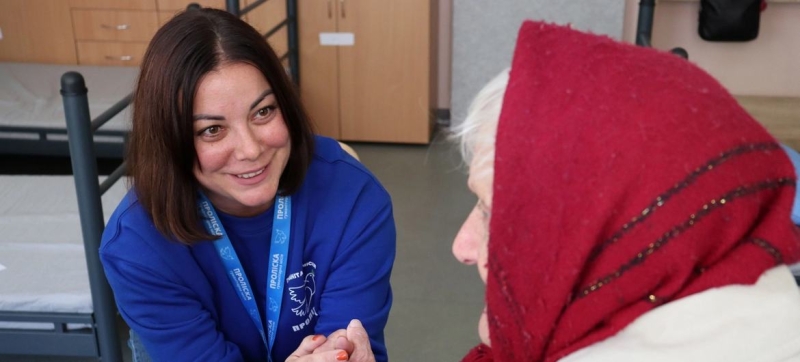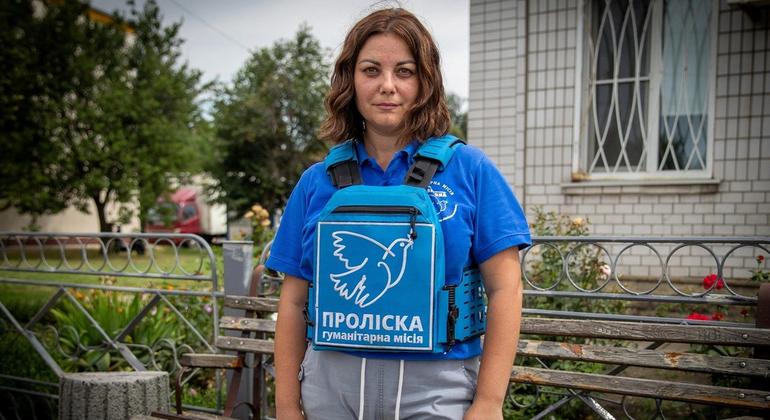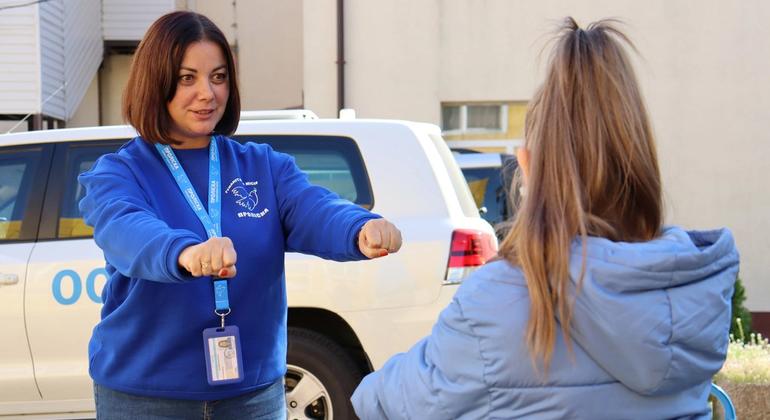
Psychologist Irina works for the NGO Proliska (Snowdrop), which is a partner of the United Nations Refugee Agency (UNHCR). The story of a Ukrainian psychologist: pain, healing and hope on the front line Peace and Security
Eleven years ago, Irina had to flee her native Donetsk and move to another part of the Donetsk region, which remained under the control of Ukraine. Eight years later, in February 2022, a full-scale Russian invasion forced her to flee her home again – this time to Dnieper, which has become a humanitarian center for thousands of people who fled the front-line areas.
But instead of despair, Irina, a psychologist by training, chose action. She joined the NGO Proliska (Snowdrop), which is a partner of the United Nations Refugee Agency (UNHCR). Irina helps people with “invisible” injuries.
“I myself was forced to leave home twice, so I know what it means to lose. We can only heal when we help others. You communicate with them as an equal – on an equal footing. I understand them, they understand me – and this helps people open up,” says Irina.
Her work often involves traveling to populated areas near the front line or meeting with people who are in a state of shock after regular airstrikes, which have intensified in recent months. As part of the Snowdrop mobile group – together with other specialists providing support to victims – Irina helps people find the strength to move on with their lives.

Shock, despair, grief, fear, insomnia, emotional numbness are just some of what she faces every day.
She once met a boy who spent four days in the basement with his parents, hiding from shelling.
“They survived on pickles and water. When the boy finally came out, he stuttered, was pale and trembling. I could hardly speak, but I began to draw. He drew the stairs they went down to the basement and what he felt there. I continue to work with him and his parents,” recalls Irina.
Children are often the first to reach out to her – they take hands, hug when they meet. out of balance and scared. We stabilize not only children, but also parents – we show breathing techniques, simple exercises so that the whole family can cope with what is happening,” she adds.
Older people have their own challenges. Many were left alone: their children went abroad or to other regions of Ukraine. Some old people did not want to leave until the last minute, until evacuation became inevitable.
“Evacuation is not just a change of place of residence. This is a deep emotional change. Our role is to help people not only survive the loss of their home, but also find themselves in new conditions and move on,” says Irina.

According to UN estimates, about 10 million Ukrainians need psychological support – a full-scale war has been going on for more than 3.5 years. Since the invasion began, UNHCR staff, along with six Ukrainian partner organizations, have provided psychosocial support to more than 300,000 people, both immediately after the attacks and after the evacuation. evacuation, says Maria Vlasenko, assistant in the department of mental health and psychosocial support. Specialists conduct individual consultations, group and family meetings, art classes for children and adults.
“Psychological assistance is never isolated – it is connected with broader work: providing legal assistance and social support, referral to specialized services. The needs of people who have experienced war and displacement are complex and interconnected. Our goal is to help them recover and start building their lives again,” says Maria.
Despite the constant danger and uncertainty, Irina from “Snowdrop” continues her work. Every little sign of recovery reminds her of the strength of the human spirit.
“The most valuable thing in my work is not only helping people here and now. What warms my heart most is when, some time later – after evacuation or shelling – I meet these people again: on the street, in a new city. They recognize me, come up, call me, tell me how they are doing. And this is the warmest feeling in the world.”
